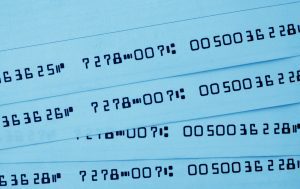LSL Webinar ‘Back to Basics | Grants from A-Z’ presented by LSL Senior Manager, Krystal Cabrera, CPA, and Supervisor, Keili Gonzalez outlined how local government finance departments can navigate the complexities of grant reporting from A-Z.
In case you missed it – when it comes to preparing for year-end, local government finance departments must ensure accurate and timely reporting, especially for the Schedule of Expenditures of Federal Awards (SEFA). Preparing your SEFA requires attention to detail, a solid understanding of grant agreements, and coordination between finance and project managers.
No matter if you’re new to this or simply need a quick reminder, you’re welcome to bookmark this post, save the link, or print out checklist for convenient reference in the future. Let’s walk through a step-by-step guide to preparing your SEFA and what you’ll need to ensure that grants are properly reconciled.
What You’ll Need to Prepare Your SEFA
To begin, gather the essential documentation and details, including:
- Prior Year SEFA and any related reconciliations or notes.
- Project Grant Reconciliations to ensure you’ve captured all necessary expenses.
- General Ledger (GL) Details to determine what cost have been charged to the program.
- Reimbursement Requests that have been submitted for the current year.
- Grant Award Letters to confirm terms, funding amounts, and restrictions.
Determining What Grants to Report
SEFA preparation starts with determining which grants need to be reported. Here’s a structured way to do this:
- Review the Prior Year SEFA to see what grants have ended or are carrying forward.
- Identify New Grants by reviewing council meeting minutes, new projects, or grant award notifications.
- Classify the Awards as Federal or Non-Federal, which will determine whether the grants should be recorded on the SEFA.
- Identify the Grant Type—whether it is a reimbursement-based grant or advance-funded.
Key Information Required for SEFA
Once you’ve identified the grants to report, it’s essential to include the following information for each:
- Grant Program Name
- Pass-through Entity or Direct Award Status
- Federal Department and Grantor Name (for pass-throughs)
- Pass-through Entity’s UEI (Unique Entity Identifier)
- Assistance Listing Number (formerly CFDA number)
- Any Required Loans
- Expense Amount
- Expenses Passed Through to Subrecipients
What Amounts to Report on SEFA
SEFA must report the current year’s grant expenses, not just amounts reimbursed. To ensure accuracy:
- Review Grant Expenditure Details in the general ledger, tracing them back to grant accounts or project IDs.
- Check Reimbursement Requests—though you can’t rely solely on these, as they may not be requested in time for SEFA reporting.
- Reconcile Grant Projects—program managers may maintain life-to-date reconciliations that can confirm the expenses to report.
Reviewing Expenditure Details
Proper reconciliation is essential to ensure all costs are accounted for. You should verify that all costs are accrued for the current fiscal year. You can review the following-period details to identify potential costs that may be missed. You should also ensure the SEFA Agrees with GL. The SEFA should always agree to the project or account balance, the only exceptions are for disallowed costs, matching percentages, or costs exceeding the grant budget.
Reviewing Reimbursement Requests
While reviewing reimbursement requests, it’s critical to verify that all costs are included in the SEFA. Keep in mind that reimbursement timing may not align with SEFA preparation. Sometimes reimbursements are delayed, and excluding unreimbursed expenses could result in underreporting.
The Importance of Grant Project Reconciliations
Grant project reconciliations help identify costs not yet requested for reimbursement and track disallowed or matching costs. Life-to-date reconciliations also assist with ensuring that revenues and receivables match across the project and helps you to identify any necessary accruals or deferrals.
Unearned vs. Unavailable Revenue
Accurate grant reconciliation ensures proper revenue recognition, including the differentiation between unearned and unavailable revenue:
- Unearned Revenue: Funds received in advance, but the expenses have not been incurred (common in advance-funded grants).
- Example: A $100,000 grant received at the start of the fiscal year, with only $50,000 spent during the year—$50,000 remains unearned.
- Unavailable Revenue: The entity has earned the revenue but not yet received the funds (typical in reimbursement-based grants).
- Example: The City incurred $50,000 in expenses in the fiscal year but received reimbursement outside the 60-day recognition period.
Why Reconciling Grants is Critical
Reconciling grants is essential for ensuring that:
- All revenues are properly reported, accrued, or deferred.
- Your SEFA accurately reflects the financial status of grant projects.
By following these steps, you’ll be able to present a comprehensive and accurate SEFA, ensuring compliance with audit requirements and demonstrating effective grant reconciliation.
For key steps involved in preparing grants for audit and best practices for staying compliant, check out ‘Grants from A-Z: Preparing for Audit’.




